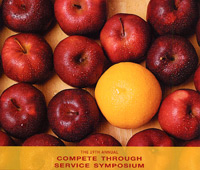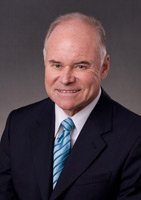
Avnet’s Roy Vallee on leadership
Thirty-seven years ago Roy Vallee was stocking shelves at a small electronics distribution company in Los Angeles. That small firm has grown up to become Avnet, Inc., a Fortune 500 firm located in Phoenix, Arizona. Avnet is one of the largest distributors of electronic parts, enterprise computing and storage products, and embedded subsystems in the world. And Roy Vallee is the CEO and chairman of the board. One morning recently, marketing professor Anthony Peloso sat down with Mr. Vallee to talk about Avnet, his leadership style, and how to motivate employees — even in a far-flung global operation. Professor Peloso leads the Marketing Professional Sales and Relationship Management Initiative, which fosters strong relationships between students who are headed for careers in sales, marketing faculty members and corporate partners. The goal is to build professional sales capabilities and advance the profile and status of the sales function. And now let’s hear what Mr. Vallee has to say about one the toughest jobs of leadership: motivating employees.




